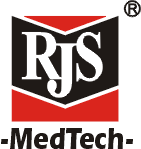On March 22, 2013, SFDA replaced the sign on its headquarters with a new sign that has its new name in Chinese, and also began displaying the new name on the agency¡¯s official Chinese and English websites, showing ¡°China Food and Drug Administration¡± as its English name. The agency has posted a two-paragraph notice on its website announcing that all of the previous functions of SFDA have been merged into the new CFDA. The notice also states that, in the interim while the reorganization is proceeding, there will be no change to the previous requirements on the handling of review and approval, examination and testing, inspection and certification, and audit and enforcement. See our full client alert for more details about this reorganization and its implications.
As a result of this restructuring, CFDA will be a full ministry agency reporting directly to the State Council, which is China¡¯s highest administrative body. According to a ¡°top [Chinese] official,¡± this new development seeks ¡°to strengthen regulation and boost people¡¯s confidence in the country¡¯s food and drug products¡± by eliminating ¡°blind spots¡± and overlaps in regulatory authority. The Chinese government has also indicated that this change will help to promote regulatory oversight and identify responsible parties, especially with respect to the regulation of food, which has been undertaken by SFDA and several other government ministries and agencies.
The newly elevated and expanded CFDA will integrate the functions of various agencies that regulate food, while also keeping its authority over drugs, devices, and cosmetics. At present, the primary focus has been on the consolidated regulation of food products, so the impact of these structural changes on the regulation of medical devices in China is unclear. Companies whose products are regulated by the agency should closely monitor the developments.

